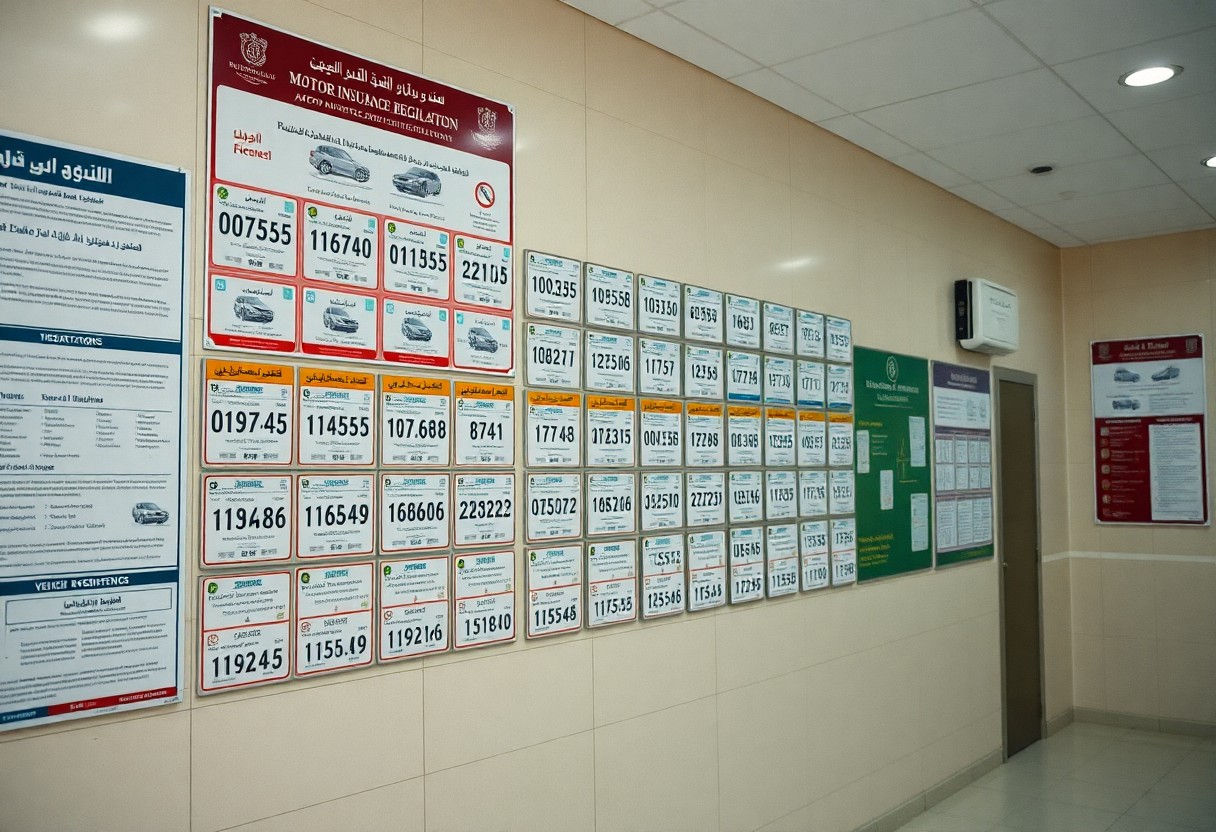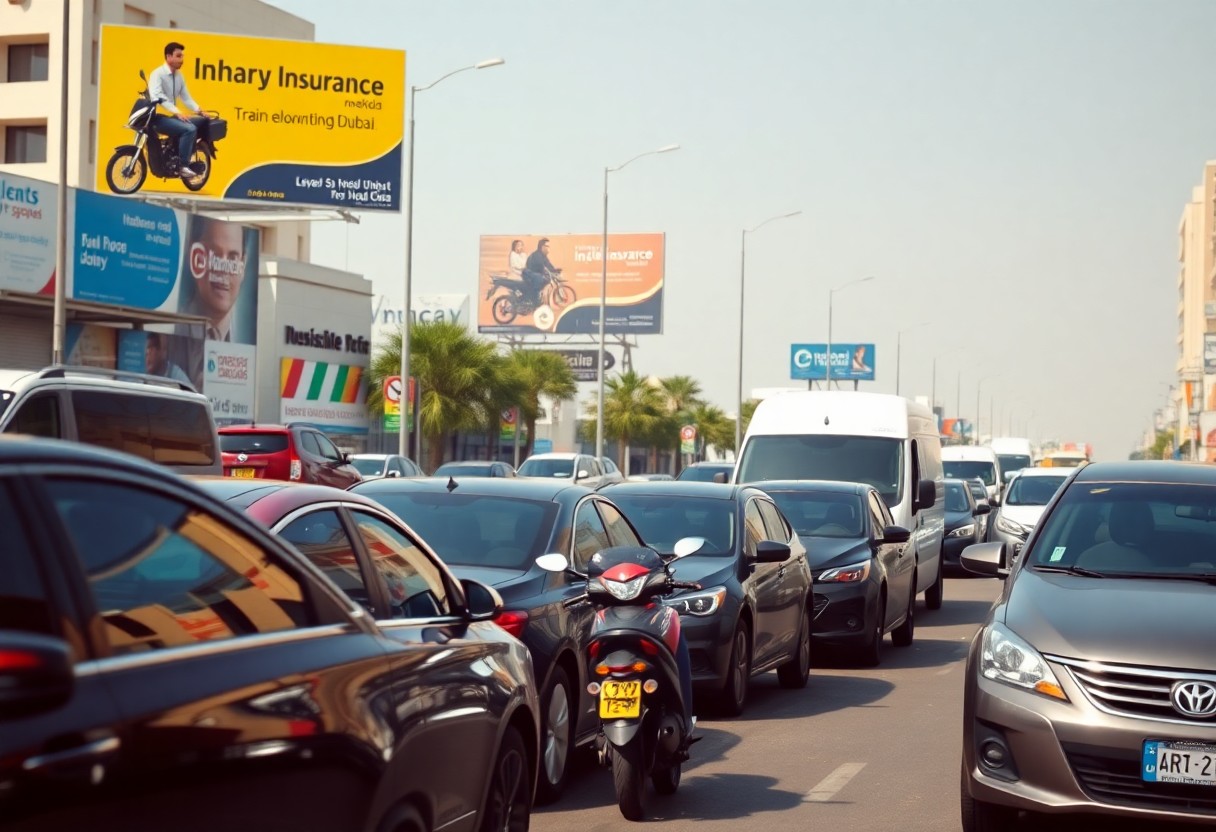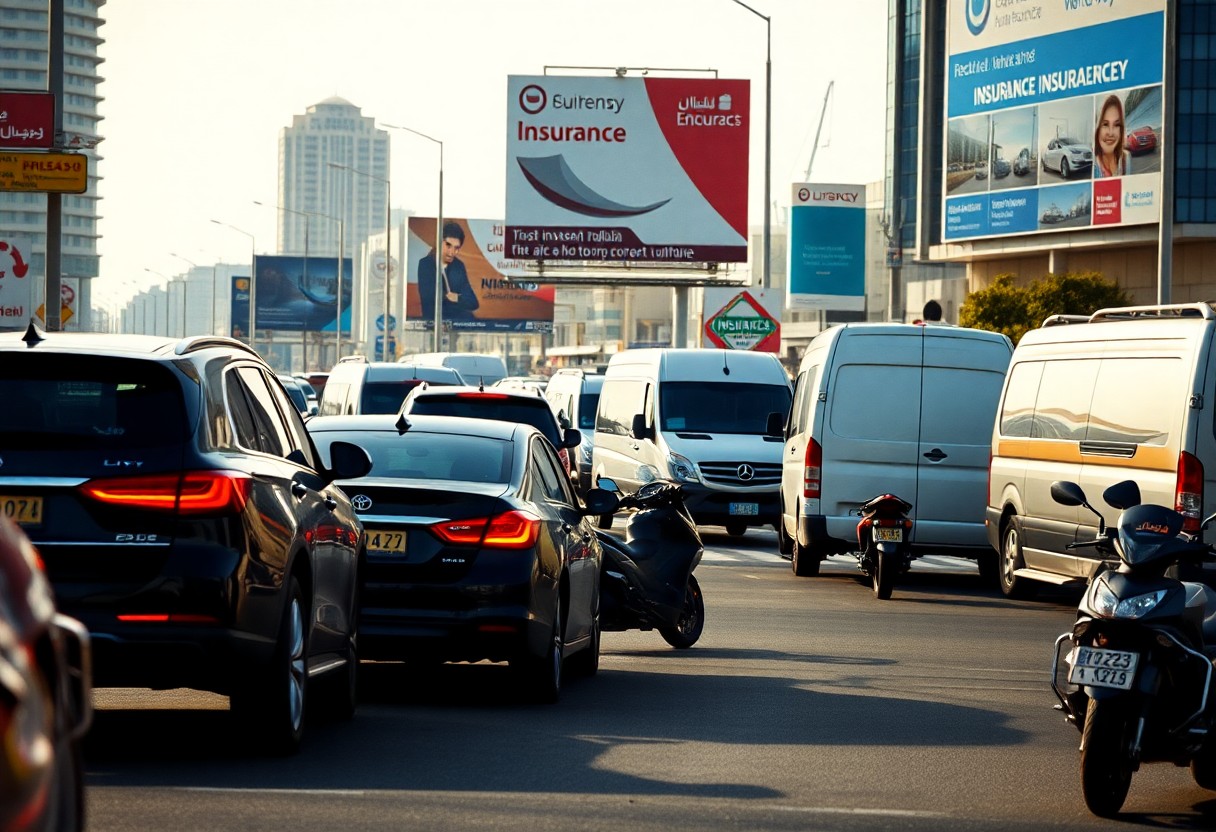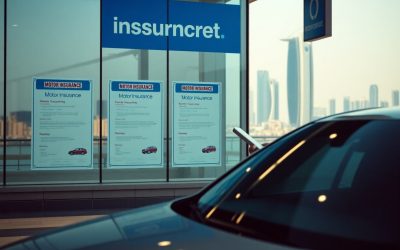Insurance in Dubai can significantly vary based on your vehicle type and usage. Understanding how these factors influence your premiums is important for making informed decisions. For instance, driving a luxury or high-performance vehicle may lead to higher costs due to increased theft and repair expenses. Conversely, using your vehicle primarily for commuting rather than leisure trips can potentially lower your rates. Safety features and annual mileage are also vital aspects that can enhance your coverage options and reduce costs. Knowing these details helps you effectively manage your insurance expenses.
Key Takeaways:
- Vehicle type influences insurance premiums, with luxury and high-performance cars typically costing more to insure.
- Commercial vehicles often have higher premiums due to increased risk and usage levels, compared to personal vehicles.
- Frequency and nature of vehicle usage can affect coverage needs and costs, with higher usage leading to higher premiums.
- Claims history and driving behavior will also impact insurance rates, with safer drivers generally receiving better rates.
- Certain vehicle modifications may lead to increased premiums or require specific endorsements for coverage.
Understanding Vehicle Types in Dubai
Your motor insurance rates in Dubai largely depend on the type of vehicle you own. Different vehicles come with varying levels of risk and insurance requirements. Understanding these distinctions will help you make informed decisions regarding your coverage.
- Personal vehicles: Typically less expensive to insure.
- Commercial vehicles: May require specialized insurance.
- Luxury vehicles: Higher premiums due to repair costs.
- Exotic vehicles: Insurance can be significantly more expensive.
- Eco-friendly vehicles: Often enjoy lower insurance rates.
The choice of vehicle impacts your insurance premiums significantly.
Commercial vs. Personal Vehicles
Insurance for commercial vehicles often carries higher premiums compared to personal vehicles. Since commercial usage typically involves more driving and can lead to riskier situations, you should expect to pay extra. Additionally, insurers look at factors such as the vehicle’s primary use, mileage, and the nature of the business to determine rates.
Luxury and Exotic Vehicles
Owning a luxury or exotic vehicle invariably leads to higher insurance costs. Factors such as the vehicle’s value, repair costs, and safety features heavily influence premiums. Because these cars often carry a higher risk due to theft or accidents, insurance providers adjust rates accordingly.
Luxury and exotic vehicles not only have high sticker prices but also come with expensive parts and specialized repair services, which means the cost of parts and labor can be significantly greater than for standard vehicles. In Dubai, the luxury vehicle segment has been growing, drawing in more enthusiasts willing to invest in insurance coverage that reflects the vehicle’s value and unique specifications. Understand that while you benefit from superior performance and prestige, your insurance will reflect the investment you’ve made.
Impact of Vehicle Usage on Insurance Rates
Your vehicle’s usage significantly influences your motor insurance rates in Dubai. Insurers assess the likelihood of accidents based on how often and for what purposes you use your car. Frequent driving, especially in a busy city like Dubai, can lead to higher premiums due to increased exposure to risks. Conversely, less frequent usage often results in lower insurance costs, as the chances of being involved in an accident diminish.
Daily Commuting vs. Occasional Use
Daily commuting typically leads to higher insurance premiums compared to occasional use. Your vehicle is at greater risk with daily travel, particularly during rush hour or peak traffic times. Insurance providers factor in the increased likelihood of collisions and incidents, resulting in a higher rate for those who require their vehicles regularly for work or errands.
Usage for Business Purposes
Using your vehicle for business purposes significantly affects insurance rates, often causing them to rise. This includes using your car for client meetings, deliveries, or other work-related activities. The higher the mileage racked up for business, the greater the risk of accidents, leading insurers to adjust premiums accordingly.
Business vehicle usage may also require a different type of insurance policy, such as commercial vehicle insurance, which typically costs more than personal auto coverage. This is due to the enhanced liability associated with transporting goods or clients. For example, if you frequently drive for your delivery business or consult clients off-site, your risk is evaluated higher than personal use drivers, resulting in increased premiums designed to cover those specific risks. Additionally, factors such as the type of goods transported and the extent of usage can further influence your overall insurance costs.
Factors Influencing Insurance Premiums
Your insurance premiums are influenced by several factors that assess risk and the likelihood of claims. These include:
- Vehicle type
- Vehicle age
- Driving history
- Location
- Coverage levels
Any adjustment in these factors can lead to significant changes in your premium rates.
Vehicle Age and Condition
The age and condition of your vehicle play a major role in determining insurance costs. Generally, newer vehicles with better safety ratings and advanced technology have lower premiums. An older car, especially if it has high mileage or requires frequent repairs, may face higher insurance rates due to increased risk.
Safety Features and Technology
Your vehicle’s safety features and technology directly influence insurance rates. Cars equipped with modern safety systems like anti-lock brakes, airbags, and collision avoidance technology often qualify for discounts. These features reduce the likelihood of accidents, making vehicles less risky for insurers.
Upgrading to a vehicle that includes smart technology, such as adaptive cruise control, lane departure warnings, and automatic emergency braking, not only enhances safety but can also significantly lower your insurance premiums. Insurers favor vehicles that have a proven track record of reducing accident severity, which translates to fewer claims. Consequently, investing in a car with advanced safety technology can yield long-term savings on your motor insurance in Dubai.
The Role of Driving History
Your driving history significantly influences your motor insurance premium in Dubai. Insurers assess your past behaviors, including accidents, traffic violations, and claims, to gauge your risk as a driver. A clean driving record generally leads to lower premiums, while a history of incidents can raise your rates substantially. For instance, if you have multiple claims or serious violations, insurers may categorize you as a high-risk driver, prompting higher insurance costs.
Accidents and Violations
Accidents and traffic violations greatly affect your insurance rates. Each incident reported to insurance can remain on your record for several years, potentially increasing your premiums. For example, a major accident could increase your premium by as much as 20-30% or more, depending on the severity and the frequency of incidents. This data helps insurers determine how likely you are to make future claims.
No-Claim Discounts
No-claim discounts (NCD) reward you for maintaining a clean driving record over a defined period. Insurers typically offer these discounts as a percentage off your premium for every year you drive without filing a claim. In Dubai, NCDs can range from 20% to 50%, meaning that over time, your responsible driving can lead to significant savings.
No-claim discounts accumulate, providing a strong incentive for safe driving. For example, if your annual premium is AED 5,000 and you maintain a clean record for three years, your NCD might increase to 30%. This would reduce your premium to AED 3,500 in the fourth year. Understanding how to leverage your driving history and maximize your NCD can save you a substantial amount in motor insurance costs over time.

Regulatory Requirements in Dubai
Understanding the regulatory landscape of motor insurance in Dubai is crucial for compliance and proper coverage. The UAE imposes specific laws to ensure all vehicle owners carry adequate insurance, safeguarding both drivers and pedestrians. Non-compliance can lead to significant penalties, including fines and vehicle impoundment, reinforcing the necessity of informed insurance choices.
Minimum Insurance Coverage
The minimum insurance coverage mandated in Dubai is third-party liability insurance. This type of coverage protects you against claims from other parties in the event of an accident. The law requires this level of insurance to cover injuries and property damage resulting from collisions, ensuring a basic level of public protection.
Types of Insurance Policies Available
In Dubai, various types of insurance policies cater to differing needs. Comprehensive insurance covers damages to your own vehicle in addition to third-party liabilities, while third-party insurance only covers damage you cause to others. Additional options include personal accident coverage and no-claims discount policies. Selecting the right option depends on your usage, budget, and risk appetite.
| Insurance Type | Description |
| Comprehensive Insurance | Covers your vehicle and third-party liabilities. |
| Third-Party Insurance | Covers damages you cause to others. |
| Personal Accident Coverage | Provides compensation for driver injuries. |
| No-Claims Discount Policy | Offers reduced premiums for claim-free years. |
| Usage-Based Insurance | Premiums based on driving behavior and mileage. |
Understanding the types of insurance policies available empowers you to make informed decisions about coverage. Comprehensive insurance is preferable for those desiring extensive protection, while third-party coverage is suitable for budget-conscious drivers. You may also consider additional policies to enhance your coverage. Key factors influencing your choice include your vehicle type, usage patterns, and financial considerations.
- Comprehensive Insurance: Suitable for full coverage and protection.
- Third-Party Insurance: A budget-friendly option for liability coverage.
- Personal Accident Coverage: Adds security for driver injuries.
- No-Claims Discount Policy: Promotes safe driving for lower premiums.
- Usage-Based Insurance: Adapts to your driving habits.
Perceiving the nuances of these policies can significantly affect your premium costs and coverage adequacy, allowing you to tailor your insurance to fit your unique driving situation.

Tips for Choosing the Right Insurance
Selecting the appropriate motor insurance in Dubai hinges on several key factors to ensure you’re adequately protected. Focus on understanding your driving habits, vehicle type, and desired coverage level. Consider these tips:
- Evaluate your driving history to find suitable premiums.
- Assess the vehicle type as it affects risk assessments.
- Choose a policy that covers your specific usage needs.
- Examine deductibles and premiums to find optimal balance.
- Utilize resources like How Does Your Car Vehicle Value Impact Your Insurance … for insights.
Assume that thorough research and comparison empower you to secure an advantageous insurance deal.
Comparing Quotes
Comparison shopping ensures you get the best insurance coverage at a competitive price. Similar policies can vary significantly between providers, making it important to analyze multiple options closely.
| Provider | Quote |
|---|---|
| Provider A | 5,000 AED |
| Provider B | 4,500 AED |
| Provider C | 5,200 AED |
Understanding Policy Terms
Familiarity with policy terms is fundamental in navigating motor insurance. You must decode the legal jargon and identify critical aspects like coverage limits, claim procedures, and exclusions.
Often, policies contain sections detailing liability coverage, comprehensive protection, and collision coverage. Pay close attention to any exclusions that might affect your coverage, such as specific circumstances under which claims may be denied. Understanding these elements equips you to make informed decisions and prevents unpleasant surprises when filing a claim.
Final Words
Taking this into account, it’s imperative to recognize how your vehicle type and usage directly influence your motor insurance in Dubai. The make and model of your car, along with how often and where you drive, affect your premium rates. For instance, high-performance vehicles typically incur higher costs due to increased risk. Moreover, daily commuting can amplify your insurance expenses compared to occasional usage. By understanding these factors, you can make informed decisions that may help optimize your coverage and potentially lower your premiums.
FAQ
Q: How does the type of vehicle affect my motor insurance premium in Dubai?
A: The type of vehicle impacts your insurance premium based on factors such as make, model, age, repair costs, and safety features. Luxury or high-performance vehicles typically have higher premiums due to increased repair costs and theft risk.
Q: What role does vehicle usage play in determining my insurance rates?
A: Vehicle usage, including personal vs. commercial use, influences insurance rates. Cars used for business purposes are generally higher in risk, leading to higher premiums compared to those used solely for personal transport.
Q: Are electric vehicles treated differently in terms of insurance compared to traditional vehicles?
A: Yes, electric vehicles may have different insurance premiums due to factors like battery replacement costs and specialized repairs. Insurers often offer specific coverage options tailored to electric vehicle needs.
Q: How does the age of my vehicle affect my motor insurance?
A: Newer vehicles typically have higher premiums due to their higher value and advanced technology. Older vehicles might have lower insurance rates but could lack modern safety features that may provide discounts on premiums.
Q: Can my driving habits and vehicle usage patterns lower my insurance costs?
A: Yes, maintaining a clean driving record, limited mileage, and opting for a usage-based insurance plan can lead to lower costs. Some insurers provide discounts for safe driving habits and low annual mileage.





0 Comments